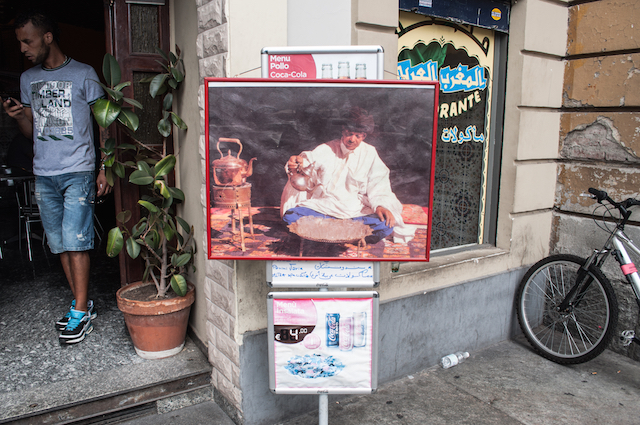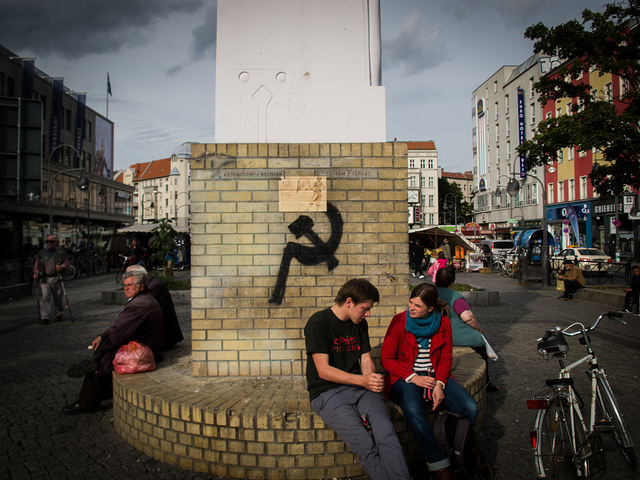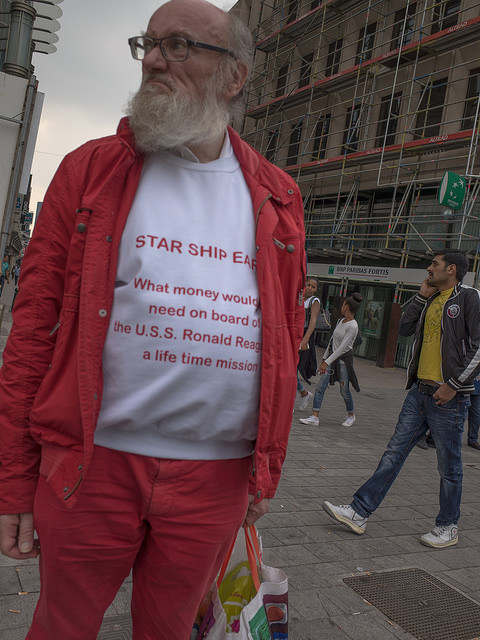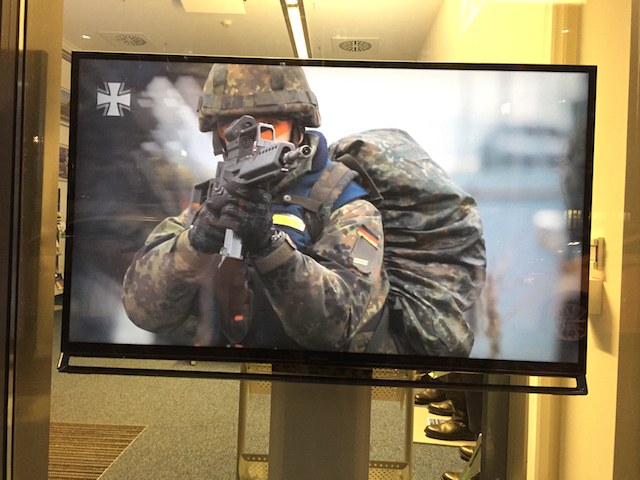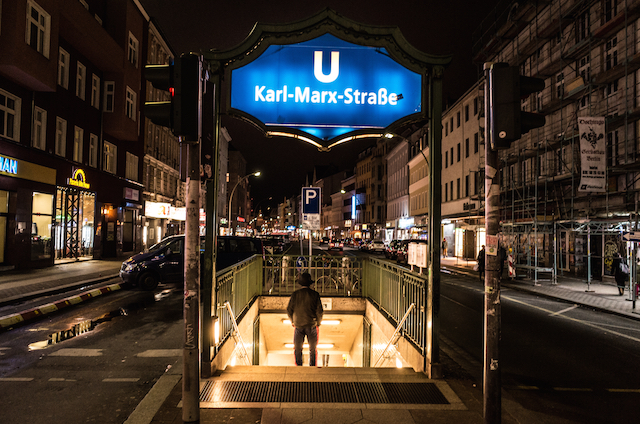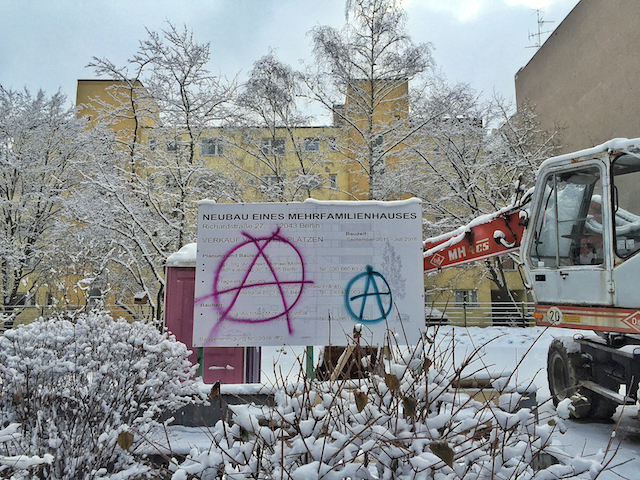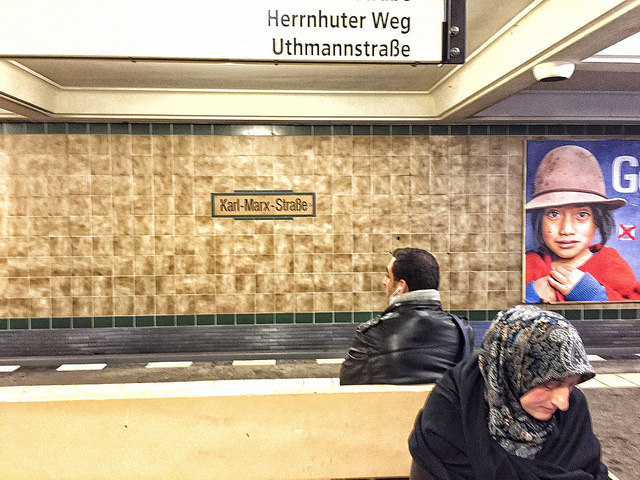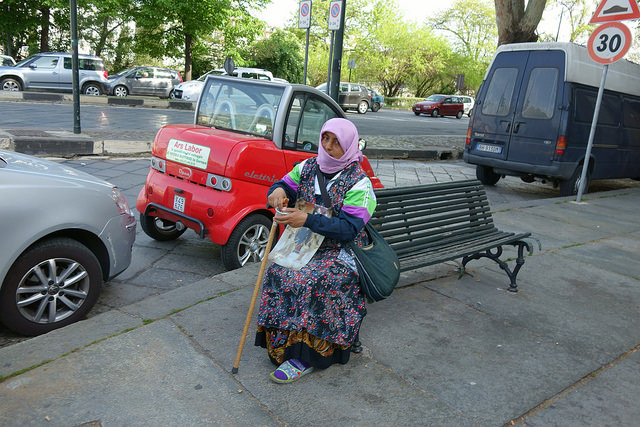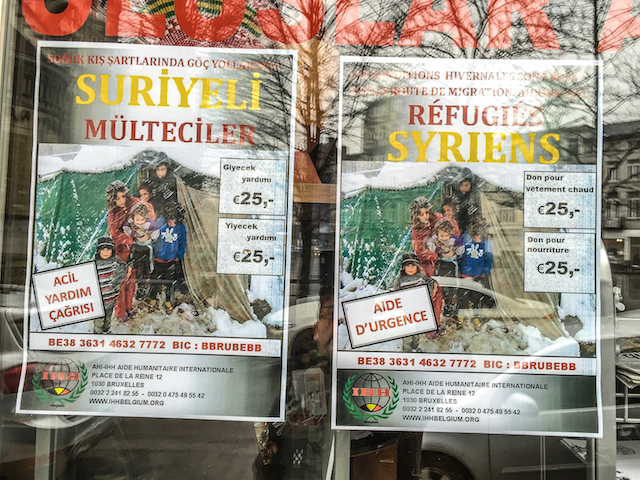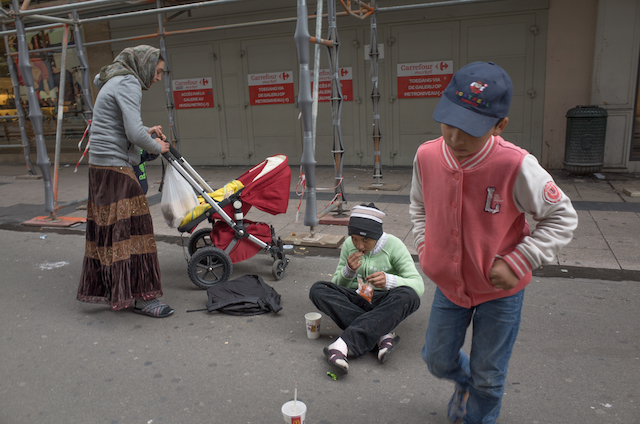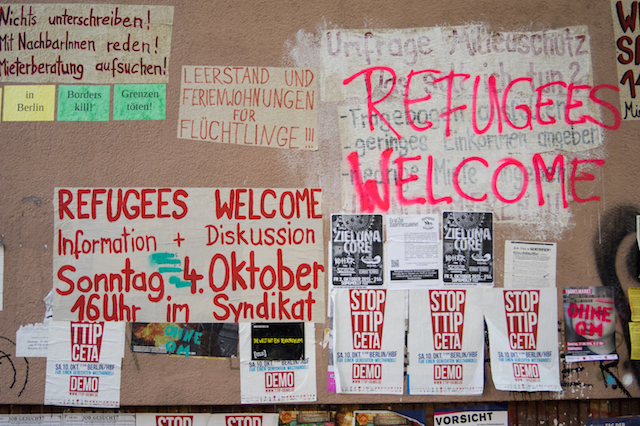Varoufakis took it in his stride. Attacked by Stephen Sackur for being unable to reconcile his radicalism with reality, Greece’s maverick ex-finance minister grinned, and moved on. This was HARDtalk. Whether Sackur meant it or not, the BBC interview program was living up to its name. And so was its guest, Europe’s best-known leftist of the moment. (More…)
Author: RandomizerMost progressive periodicals emphasize words over images. Not Souciant. Randomizer is a column devoted to our love for political visuals. Collectively-authored by Souciant’s editorial staff, wherever they are. Including the kitchen.
Most progressive periodicals emphasize words over images. Not Souciant. Randomizer is a column devoted to our love for political visuals. Collectively-authored by Souciant’s editorial staff, wherever they are. Including the kitchen.
It ought to be a positive. To have their situation constantly referred to as “the worst crisis since World War II,” today’s refugees ideally ought to be shown the courtesy accorded to persons engulfed in a similar disaster. Why not invoke that era? Aside from the scale of the crisis, it should be an immediate guarantee of empathy, because Europeans all know what the last global conflict was like. (More…)
The 1990s were a drag. In every newspaper and magazine, on radio, and TV, the death of communism was repeatedly proclaimed, as though it were an alien force that had been successfully repulsed by human nature. (More…)
Blame it on the Baby Boomers. No matter where you go, whether it’s Europe or the United States, there will always be a hippie presence on the left. Partially due to generational mass, partially a consequence of the liberal consensus of the 1960s, their imprimatur on progressive politics is inescapable. (More…)
Few countries agonize more about sending their troops to war than Germany. That doesn’t prevent foreign deployments, however. German forces have been sent abroad for over twenty years nows, beginning with the war in Bosnia. But the ongoing debate highlights the persistence of pacifism in the country, crossing political boundaries in a manner unheard of in the United States. Given German history, one can understand why. (More…)
For radicals, it can be exciting. Graffiti denouncing god scrawled on churches. Manifestos posted to to nearly every utility box. Streets and squares named after left-wing icons, like Karl Marx, and Walter Benjamin, in nearly every district, in the western half of the city, as well as the the predictable east. (More…)
Jerusalem for hipsters. San Francisco in exile. New York, when it was still cool. Berlinistan, to its Middle Eastern inhabitants. Poor but sexy, according to its former mayor. The German capital is many things to many people, the majority of reasons of which are decidedly unglamorous. For a major European city, it’s still relatively inexpensive. (More…)
For today’s leftists, the lingering reminders of a time when their politics were less marginal can provide considerable comfort. Sometimes, as in the case of Boomers who were part of the student movement in the 1960s and ’70s, this takes the form of reliving their “glory days.” More and more, though, it represents nostalgia for a past that precedes lived experience. (More…)
Refugees welcome, indeed. For those who lament Germany’s sudden about turn in the wake of the Cologne assaults, take a step back. The brief window, during which Germans defined European tolerance, has witnessed a returned to form. Meaning discomfort, ambivalence, if not outright racism. (More…)
The populists are wrong. Getting settled in Europe is a lot harder than it seems. Though refugees and asylum seekers often receive support from their adopted home countries, the process of settling down, and earning residency, is incredibly hard, with no guarantees of success. It all depends on how you handle immigration bureaucracy, not just at the moment of arrival, but for years to come. (More…)
Everyone is a photographer now. So went the refrain, inside editorial rooms, in the United States, as smartphones began to proliferate, in 2007-8. Seeing dollar signs in the rise of citizen journalism, eager to shed editorial staff, reporters would now be required to shoot their own pieces, as well as write them. (More…)
Angela Merkel was just playing catch-up. By the time she announced Germany’s new open borders policy last summer (before retreating, a week or so later,) the slogan “Refugees Welcome” was already several years old. Plastered throughout Berlin, particularly the city’s heavily Muslim central neighborhoods, it was the anti-Swastika. (More…)

